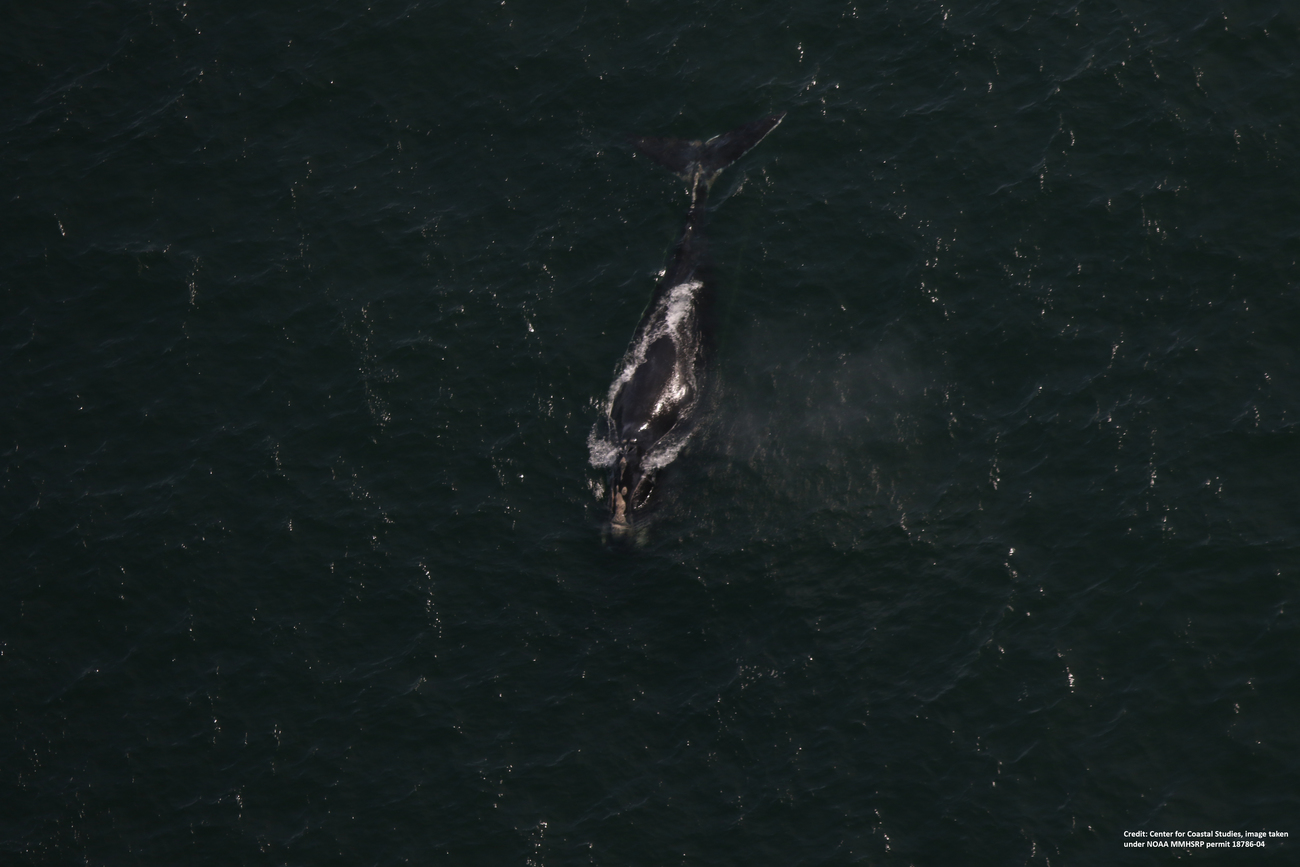Saving the North Atlantic right whale - North America
Don't fail our whaletwo critically endangered right whales discovered entangled in gear
two critically endangered right whales discovered entangled in gear

(NANTUCKET, Massachusetts - 21 October 2020) – In the past two weeks, two critically endangered North Atlantic right whales have been spotted entangled in gear. Only 400 of these whales remain on the planet, and of those, only 100 are breeding females putting them at increasing risk of extinction.
The first entangled whale was seen on October 11 by whale watchers off the New Jersey coast. The whale, identified as #4680, is a juvenile male and has not been re-sighted since. He was so badly entangled, his injuries are likely fatal. Tragically, he is the calf of Dragon, a breeding female who was last seen in February 2020 southeast of Nantucket, also with a life-threatening entanglement. At that time, she was heavily entangled and emaciated, with a fishing buoy and rope tied around her head, likely binding her mouth shut and preventing her from feeding. Dragon is presumed to have died either from starvation or infection and it is likely her calf will suffer the same fate.
The most recent entangled right whale was discovered on Monday off the coast of Nantucket, Massachusetts during an aerial survey conducted by the Center for Coastal Studies (CCS). This whale was identified by the New England Aquarium as an 11 year old male also known as “Cottontail.” He was thin and in declining health with a line wrapped tightly around his head, exiting both sides of his mouth, and dragging beyond his tail for about three to four times his body length. The Marine Animal Entanglement Response Team (MAER) from CCS was able to remove parts of the gear and attach a satellite tracking buoy to monitor the animal’s location for further rescue interventions. Cottontail was an extremely active whale, and his reactions, evasive movements and a challenging entanglement configuration prevented his complete disentanglement.
A team of experienced whale veterinarians and biologists from the International Fund for Animal Welfare (IFAW) have been asked to provide veterinary support for this ongoing disentanglement effort, given how challenging this case is. IFAW maintains a custom-built remote drug delivery device capable of administering sedatives that can help slow whales like this down enough to improve the chances that the response team gets better opportunities for a successful disentanglement.
Without human intervention to free them, entangled whales often suffer an extremely slow and painful death, sometimes over many weeks or months, as the entangling gear affects their ability to feed and swim and gradually cuts into their flesh leading to infection and eventual death. Due to fog and rough seas, further attempts to free “Cottontail” were temporarily suspended, but the teams will continue to remotely track his location and craft a course of action for the next few days. Disentanglement efforts address the immediate, physical problems of entanglement in fishing gear, but do not solve the issue. IFAW has been championing ropeless fishing gear in an effort to remove dangerous vertical buoy lines from the water column and drastically reduce the chance of whales becoming entangled.
According to Marine Campaigner CT Harry, “Pursuing real-world technological solutions including ropeless gear collaboratively alongside industry, scientists, legislators, and technology manufacturers, will allow us 21st century solutions to effectively confront this key driver of right whale mortality and secure a more sustainable long-term solution.”
Related content
every problem has a solution, every solution needs support.
The problems we face are urgent, complicated, and resistant to change. Real solutions demand creativity, hard work, and involvement from people like you.